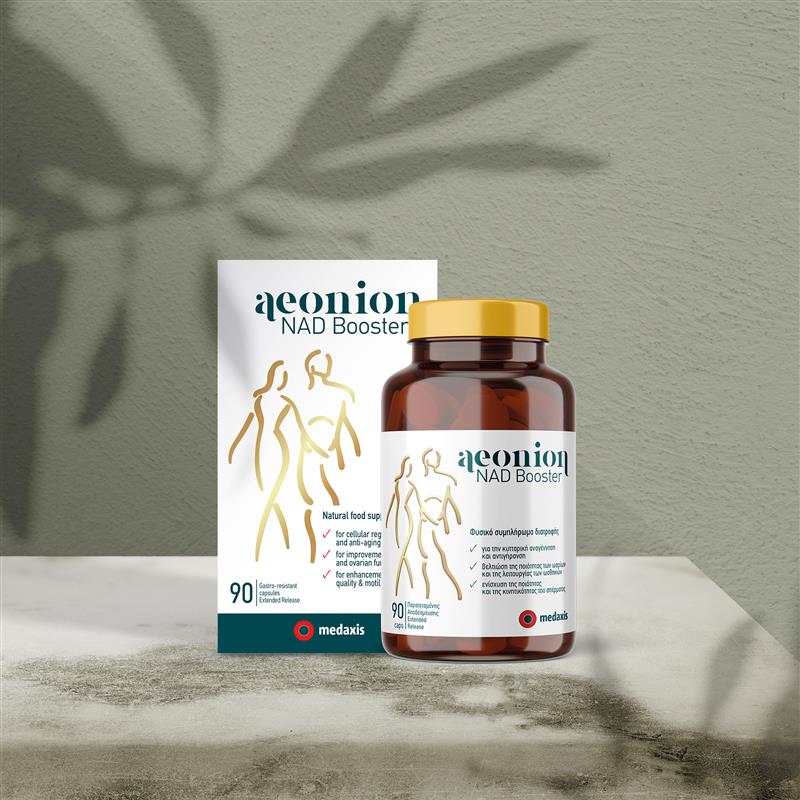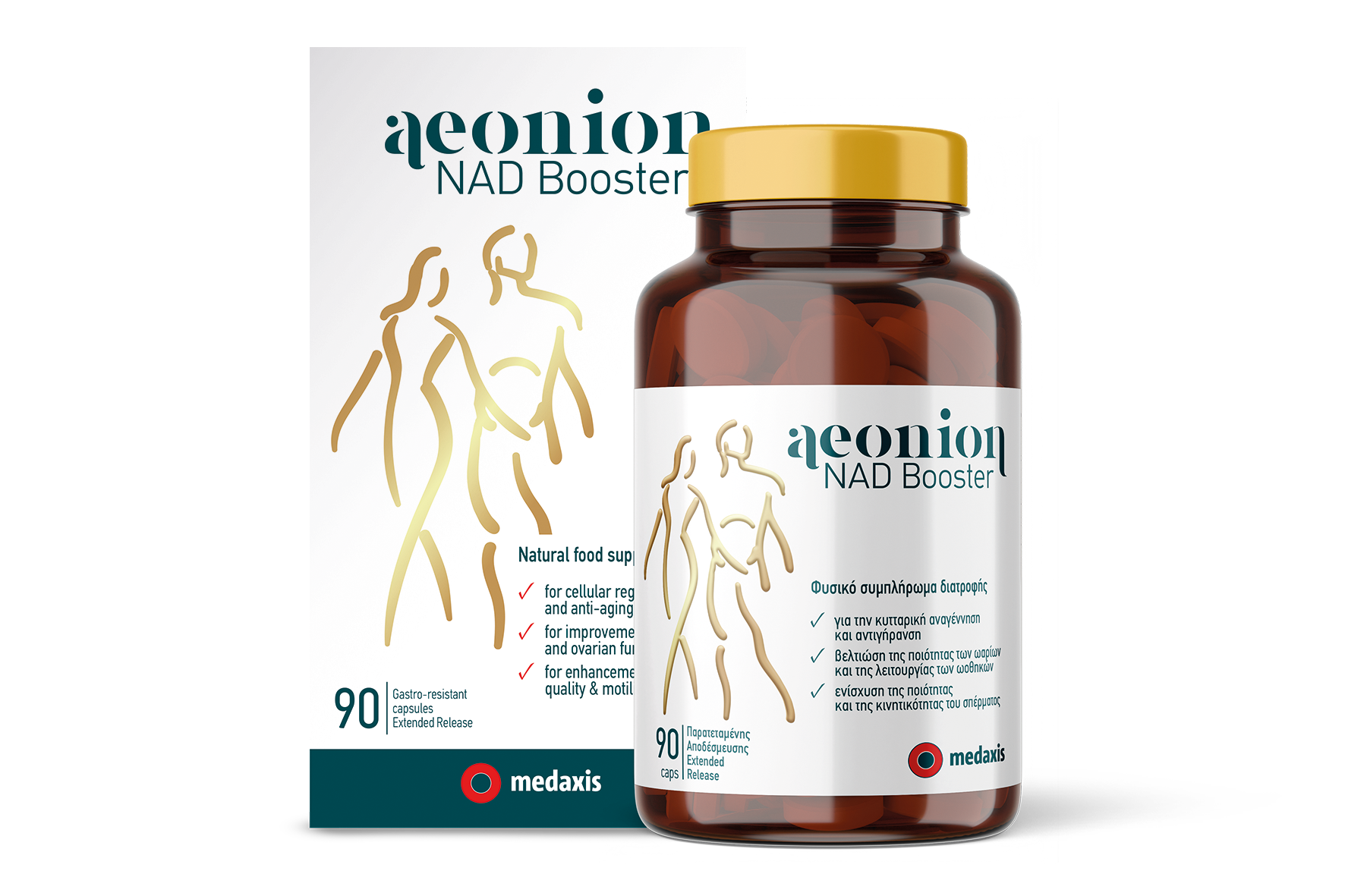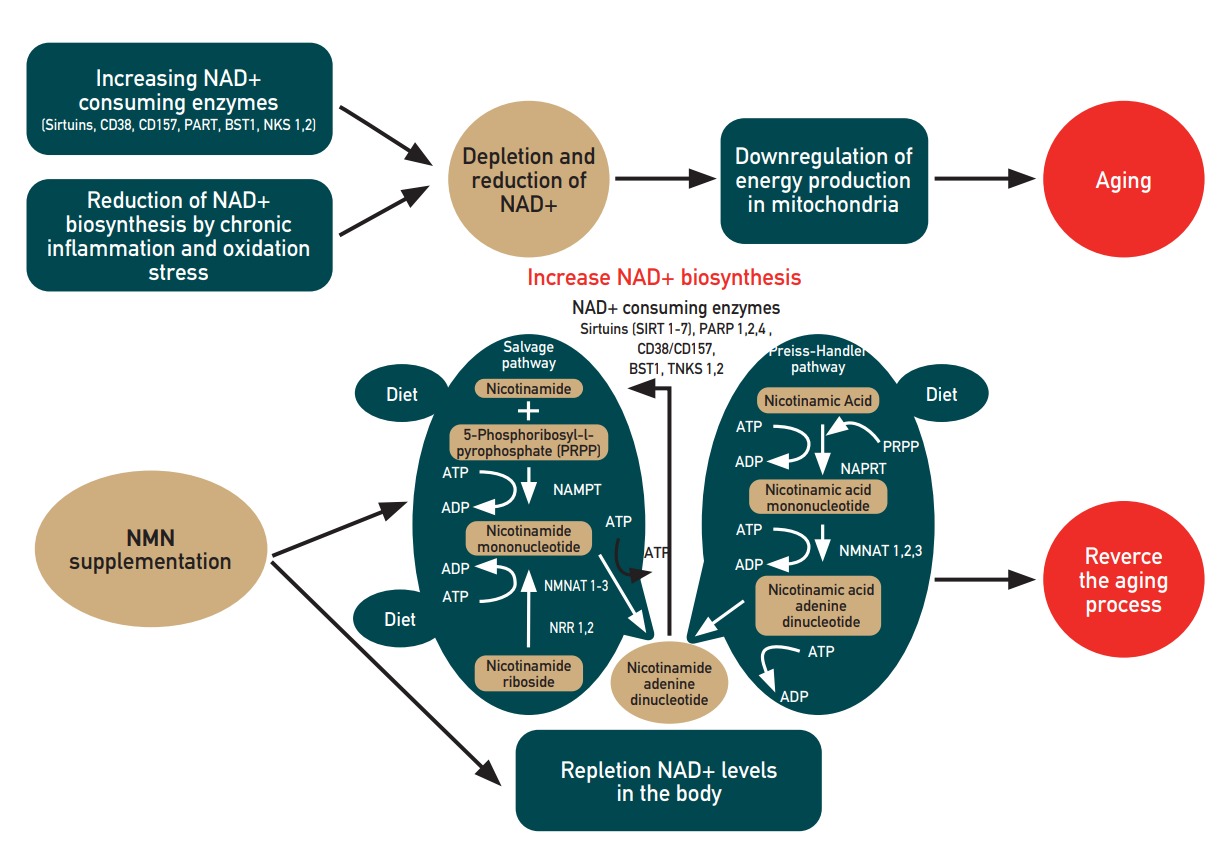An In-depth Insight
In recent years, there has been increasing interest in the potential impact of NMN (Nicotinamide Mononucleotide) in fertility. In this context, NMN is postulated to play an important role in the body, is connected to antiaging and is linked with fertility. NMN is believed to be implicated in fertility treatments in the future.
Understanding the Role of NMN in the Body
NMN is a naturally occurring compound that plays a crucial role in various biological processes. It is a precursor to the coenzyme nicotinamide adenine dinucleotide (NAD+), which is involved in energy metabolism, DNA repair, and cellular signaling. NAD+ levels decline with age, and this decline has been linked to numerous age-related conditions, including fertility issues.
The Biological Function of NMN
As a key component in the NAD+ synthesis pathway, NMN helps replenish NAD+ levels in the body. NAD+, also known as the “molecule of youth”, is essential for cellular energy production, maintaining healthy mitochondrial function, and promoting DNA stability. Without sufficient NAD+, cells struggle to generate energy efficiently and are more prone to DNA damage.
By increasing NAD+ levels, NMN supports overall cellular health and function. It acts as a fuel for the mitochondria, the powerhouses of body cells, enabling them to produce the energy needed for various biological processes. Additionally, NMN plays a vital role in DNA repair mechanisms, ensuring the integrity of your genetic material.
The Connection Between NMN and Aging
Aging is a complex process characterized by a gradual decline in physiological function. While various factors influence this decline, growing evidence suggests that it is the age-related decline in NAD+ levels that contributes significantly to the aging process.
As you age, your body naturally produces less NAD+, leading to decreased cellular energy production and compromised mitochondrial function. This decline in NAD+ levels can impair DNA repair mechanisms, making your cells more susceptible to damage and mutations. The consequences of this decline can be seen in various age-related conditions, such as decreased fertility, reduced cognitive function, and weakened immune response.
However exciting research has shown that NMN supplementation has the potential to counteract some aspects of aging by boosting NAD+ levels and supporting cellular functions throughout the body. By providing an additional source of NMN, you can help replenish NAD+ levels and potentially slow down the aging process. NMN supplementation can improve mitochondrial function, enhance energy metabolism, and promote overall healthspan.
In conclusion, NMN plays a vital role in maintaining cellular health and function by replenishing NAD+ levels. Its connection to the aging process highlights its potential as an anti-aging intervention.
The Link Between NMN and Fertility
As fertility declines with age, researchers have begun exploring the potential role of NMN in enhancing reproductive health. Both male and female fertility may be influenced by NMN levels, suggesting that NMN supplementation could be a valuable tool in fertility treatments.
NMN and Female Fertility
In women, NMN may play a crucial role in maintaining optimal egg quality and supporting reproductive function. Aging can lead to a decrease in the number and quality of eggs, making it more challenging to conceive. NMN supplementation has shown promise in improving ovarian function and promoting the production of healthier eggs.
One study conducted on laboratory animals found that NMN supplementation increased the number of mature eggs produced and improved their quality. This is significant because the quality of eggs is a crucial factor in successful conception and healthy pregnancy. By enhancing egg quality, NMN could potentially increase the chances of successful fertilization and implantation.
Furthermore, NMN has been found to have anti-inflammatory properties, which can be beneficial for female fertility. Chronic inflammation in the reproductive organs can impair fertility by disrupting the delicate balance of hormones and interfering with the implantation process. By reducing inflammation, NMN may create a more favorable environment for conception and pregnancy.
NMN and Male Fertility
Male fertility is also influenced by NMN levels, particularly the quality and motility of sperm. NMN supplementation has been found to improve sperm quality and function in animal studies. NMN supplementation increased sperm motility and improved sperm morphology. These findings suggest that NMN could enhance male fertility by supporting sperm health and increasing the chances of successful conception.
Additionally, NMN has been shown to have antioxidant properties, which can protect sperm from oxidative damage. Oxidative stress can negatively impact sperm quality, leading to reduced fertility. By reducing oxidative stress, NMN may help maintain sperm health and improve fertility outcomes.
In conclusion, NMN shows promise as a potential supplement for enhancing fertility in both men and women. By improving egg quality and ovarian function in women and enhancing sperm quality and motility in men, NMN may offer a valuable tool in fertility treatments.
The Science Behind NMN and Fertility
Recent studies have shed light on the fascinating role that NMN plays in the intricate processes of egg and sperm quality. NMN has been found to regulate various pathways involved in these crucial aspects of reproduction.
One of the key ways NMN supports fertility is by helping maintain proper DNA integrity. DNA damage can have detrimental effects on the genetic material passed on to the next generation. However, NMN supplementation has been shown to enhance DNA repair mechanisms, ensuring that the genetic material within eggs and sperm remains intact.
In addition to DNA integrity, NMN also promotes mitochondrial function. Mitochondria are the powerhouses of cells, providing the energy needed for various cellular processes, including fertilization. By enhancing mitochondrial function, NMN supplementation may contribute to the improvement of overall egg and sperm quality, increasing the chances of successful fertilization and pregnancy.
Furthermore, NMN supports oxidative stress resistance. Oxidative stress occurs when there is an imbalance between the production of harmful free radicals and the body’s ability to neutralize them. This imbalance can negatively impact fertility by damaging eggs, sperm, and reproductive organs. However, NMN has been shown to enhance the body’s antioxidant defenses, reducing oxidative stress and protecting reproductive cells from harm.
The Role of NMN in Egg and Sperm Quality
Delving deeper into the role of NMN in egg and sperm quality, it is found that its effects extend beyond DNA integrity, mitochondrial function, and oxidative stress resistance. Research has shown that NMN supplementation can also enhance the production of healthy eggs and sperm. By supporting the maturation process of eggs, NMN may increase the likelihood of successful fertilization. Similarly, in men, NMN has been found to improve sperm motility, morphology, and count, which are crucial for successful conception.
Moreover, NMN has been found to have a positive impact on the reproductive lifespan of women. As women age, the quantity and quality of their eggs decline, making it more challenging to conceive. However, NMN supplementation has been shown to slow down this age-related decline, potentially extending the window of fertility for women.
NMN and Hormonal Balance
Hormonal balance is critical for reproductive health, and NMN has been shown to influence hormonal pathways related to fertility. By modulating hormone levels and signaling pathways, NMN may help regulate the menstrual cycle, promote regular ovulation, and support optimal hormonal balance in both men and women.
In women, NMN has been found to support the production of estrogen and progesterone, two key hormones involved in the menstrual cycle and pregnancy. By ensuring adequate levels of these hormones, NMN may help regulate the timing of ovulation and create a favorable environment for implantation and pregnancy.
In men, NMN has been shown to enhance testosterone production, a hormone crucial for sperm production and overall reproductive health. By optimizing testosterone levels, NMN may improve sperm quality and motility, increasing the chances of successful fertilization.
Overall, the scientific evidence suggests that NMN supplementation holds promise in improving fertility outcomes. By supporting egg and sperm quality, as well as hormonal balance, NMN may offer a natural and effective approach for individuals seeking to enhance their reproductive potential
Prospective Advantages of NMN Supplementation
By boosting NAD+ levels and supporting cellular functions, NMN supplementation may offer several advantages for individuals struggling with fertility issues. These potential benefits include improved egg and sperm quality, enhanced reproductive function, and increased chances of successful conception. Furthermore, NMN’s role in combating age-related decline may be particularly beneficial for individuals facing fertility challenges later in life.
Possible Side Effects and Concerns
NMN supplementation appears generally safe and well-tolerated.
The Potential of NMN in Assisted Reproductive Technology
Assisted reproductive technology, such as in-vitro fertilization (IVF), has revolutionized fertility treatments. Incorporating NMN supplementation into existing protocols may offer a new avenue for enhancing the success rates of these procedures. By optimizing egg and sperm quality and supporting reproductive function, NMN may become a valuable tool in improving the effectiveness of assisted reproductive techniques.
Conclusion
In conclusion, the potential impact of NMN on fertility is an exciting area of research. NMN supplementation shows promise in supporting reproductive health by enhancing egg and sperm quality, regulating hormonal balance, and potentially counteracting age-related decline. As scientific developments continue to unfold, NMN may play a valuable role in future fertility treatments.
Exploration of the Antioxidant Effect of Spermidine on the Ovaries
Current findings suggest that spermidine regulates the activity of antioxidant enzymes and the expression level of autophagy proteins. Autophagy activated by spermidine plays an antioxidant role in preventing follicular atresia. Spermidine protects ovarian function by reducing the number of atresia follicles and regulating the level of autophagy protein, antioxidant enzyme activity and polyamine metabolism.
Spermidine is a critical metabolite in the preservation of oocyte quality during oocyte ageing. Spermidine supplementation can promote oocyte maturation, improve fertilization capacity, as well as the potential for early embryonic development, increasing female fertility. Spermidine is a naturally occurring compound that has been linked to increased longevity. New research shows that supplementation with spermidine improves oocyte quality and fertility in older female mice. Spermidine could serve as a therapeutic strategy to “improve the reproductive outcome of older women, either through natural pregnancy or assisted reproductive technologies”. The results are published in the
journal Nature Aging.
Female fertility decreases one to two decades before the menopausal transition. A study by Zhang et al. now identifies age-related decline of the polyamine spermidine as a crucial bottleneck for oocyte quality. Supplementation with spermidine rejuvenates oocytes in vitro and in vivo, and leads to improved fertility.
Resveratrol plays a supporting role in the journey to a successful conception. When taken as a supplement, this powerful antioxidant delivers serious benefits for both eggs and sperm.
Resveratrol is a polyphenol, a type of micronutrient found in plants that offers antioxidant properties. That means it can support fertility by protecting eggs and sperm from oxidative stress, but the benefits don’t end there. Resveratrol also reduces inflammation, protects the heart from the effects of aging and is insulin-sensitizing. Though there’s no known illness caused by a lack of polyphenols, we know that consuming higher amounts is associated with longevity and less risk of chronic diseases.
Resveratrol is found in red grape skins, peanuts, berries and-yes-red wine. A therapeutic dose usually ranges from 100-200 mg.
What are the fertility benefits of Resveratrol for men and sperm?
Spermatozoa are incredibly tiny cells, which makes them ultra sensitive to their surroundings— especially if they’re exposed to harmful free radicals from pollution, cigarette smoke and other toxins. Trans-Resveratrol’s antioxidants offer protection against this DNA damage. Antioxidants including Resveratrol have been shown to boost several sperm parameters, including concentration, count, and motility.
What are the fertility benefits of Resveratrol for women and eggs?
The main benefit of Resveratrol for eggs lies in its antioxidant effects. Eggs face damage as they age and/or are exposed to free radicals from stressors like nutrient deficiencies, inflammation, insulin resistance, high cholesterol, etc. But Resveratrol has the ability to reduce oxidative stress and repair DNA damage to mitochondria (where cells get their much-needed energy). Research shows that Resveratrol could be especially helpful for aging eggs as well as people with PCOS.
It’s also highly beneficial for those with endometriosis because of its ability to decrease the inflammation and oxidative stress in the reproductive tract that can hurt egg quality. Less inflammation also means less of the pain and discomfort that endometriosis warriors know all too well
Quercetin and Male Fertility
Infertility causes social and psychological distress and has negative economic effects on healthcare systems. Infertility is the inability to conceive after at least 12 months of unprotected regular sexual intercourse. Finding the impacts of herbal antioxidants can result in new visions for enhancing male fertility. Quercetin belongs to the bioflavonoids family, and many nutritionists, scientists, and researchers have investigated its pharmacokinetic and pharmacodynamic properties in their studies. The protecting role of quercetin against oxidative damage and toxic metals stimulating male infertility has been investigated thoroughly and a positive effect has been reported.
Due to insufficient antioxidant defenses and inadequate cell repair systems, spermatozoa are predominantly susceptible to oxidative stress and toxic agents, especially heavy metals. Reactive oxygen species mediate several other cellular mechanisms, such as apoptosis. Previous research has highlighted quercetin and polyphenols’ positive impact on male fertility. Quercetin exerts its beneficial functions through its antioxidant capacity by scavenging ROS and chelating toxic heavy metals and other environmental contaminants; thus, it can prevent male infertility.
Quercetin and Female Fertility
Maternal fertility declines irreversibly with aging, and advanced maternal age is mostly related to impaired oocyte quality. The flavonol compound quercetin is considered to be an anti-aging agent due to its cytoprotective actions as an antioxidant.
Quercetin promotes in vitro maturation (IVM) and early embryonic development of oocytes from aged mice. These findings are extended in human oocytes, showing that quercetin promotes the IVM rate by 19.6% and increases the blastocyst formation rate by 15.5% compared to untreated controls. Overall oocyte quality is improved by quercetin treatment. Mitochondria is the primary endogenous source of age-related oxidative stress, and analysis of quercetin-treated oocytes reveals molecular insights including scavenged mitochondrial-ROS, reduced apoptosis, and improved autophagy.
Further, it was demonstrated that quercetin reduces ROS. Thus, beyond demonstrating that quercetin confers beneficial mitochondria-related impacts in aged oocytes, this study illustrates a potential strategy to prevent or delay oocyte aging and to improve success rates of assisted human reproductive technologies (ART)



